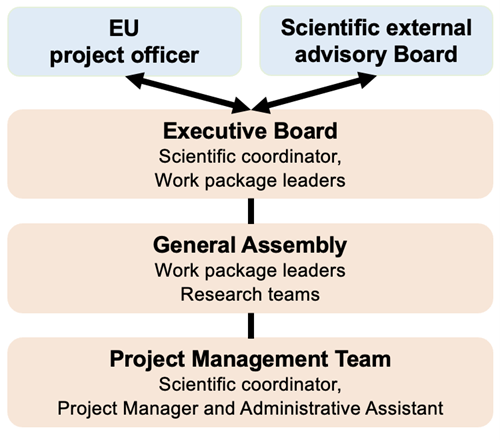About us

About PREPARE-TID
It has become apparent that the ease of travelling, global warming, and changes in the environment accelerate the spread of infectious diseases of zoonotic origin. International collaboration is essential to impact on the control of disease epidemics, and as the COVID pandemic has shown rapid diagnostics are one of the main pillars. PREPARE-TID will target infectious agents of three types: an ongoing neglected epidemic, an ongoing emerging epidemic, and an ongoing elimination drive. The aim is to develop the necessary in vitro diagnostic tools for preparedness needed in case of the emergence of infectious agent X. PREPARE-TID is a multidisciplinary research consortium drawn from 16 European and 4 international research organisations and SMEs.
Biomedical researchers will work alongside epidemiologists, clinicians, veterinarians, and software engineers to implement a pipeline from a mobile suitcase sequencing laboratory with a simple bioinformatics to a fieldable rapid nucleic acid extraction procedure, a mobile smartphone linked molecular point-of-care and a multiplex PCR one-health surveillance platform, and a one health digital platform. These will provide innovative diagnostic solutions for cross-border health threats at international level. PREPARE-TID will increase the accessibility to novel diagnostics for detection of pathogens with pandemic potential. The consortium will deliver point-of-care and mobile diagnostics, which can be easily deployed and mass produced in case of an epidemic or pandemic.
Our partners
The consortium comprises of research groups from 11 European countries covering the north (Sweden, Finland), the south (Spain and Italy), the east (Serbia, Hungary, Greece and Turkey) and the west (Austria, France, Germany and Switzerland). Additionally, the consortium includes key partners from Senegal, Uganda, Bangladesh and Brazil. This will increase the reach of the project, as facing epidemics requires global efforts as well as different perspectives of case management.
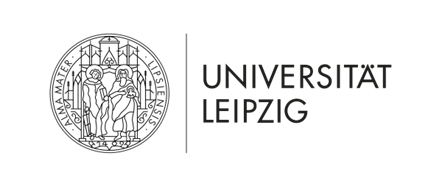
Institute of Animal Hygiene and Veterinary Public Health, Leipzig University (ULEI), Germany

National Institute for Research for Agriculture, Food and the Environment

Barcelona Institute for Global Health - ISGLOBAL
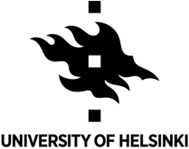
Faculty of Medicine and Veterinary Medicine, University of Helsinki, Finland

midge medical GmbH

ETH Zürich
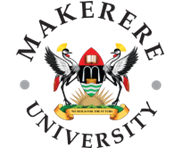
Makerere University (MAK), Uganda

HUN-REN Centre for Ecological Research

University of Veterinary Medicine Vienna

University of Padova

Swedish Veterinary Institute
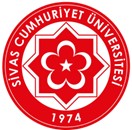
Sivas Cumhuriyet University (SCU), Türkiye

Xpedite Diagnostics GmbH, Germany

Diaxxo
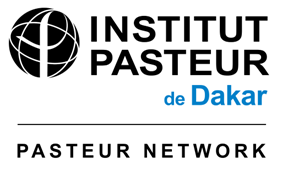
Institut Pasteur de Dakar (IPD), Senegal
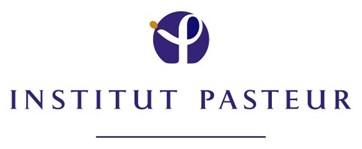
Institut Pasteur, Paris, France

Scientific Veterinary Institute “Novi Sad”, Novi Sad, Serbia

Kafkas University, Kars, Turkey

REPADO Ltd. Greece
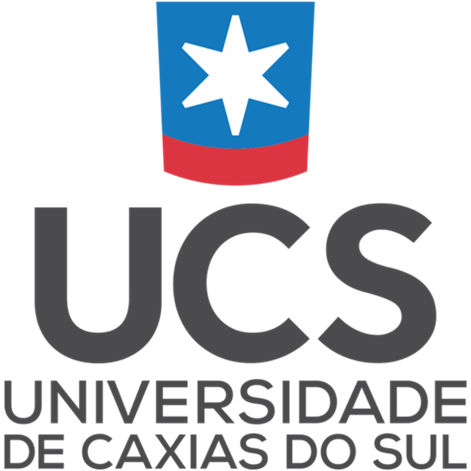
Universidade de Caxias do Sul

International Centre for Diarrhoeal Disease Research, Bangladesh
Our team
Germany
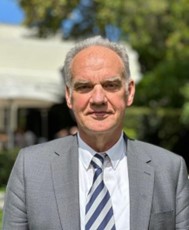
Prof. Dr. Uwe TRUYEN
Director
Institute for Animal Hygiene and Veterinary Public Health
Leipzig University
Germany
After studying veterinary medicine in Germany (1981–1986), Prof. Truyen did his post-doctoral studies in Hanover and Munich and studied as a post-doctoral fellow in Colin Parrish’s lab at the Baker Institute of Cornell University (USA). He is currently a professor of animal hygiene and epidemic disease control in the Veterinary Faculty of Leipzig University and the director of the Institute for Animal Hygiene and Veterinary Public Health. He is also a chairman of the standing veterinary vaccine committee of Germany and of the scientific advisory board of the German Federal Institute for Risk Assessment (BfR). Among other subjects, Prof. Truyen has been working on the molecular epidemiology of animal parvoviruses and caliciviruses, hygiene management in animal husbandry, anti-microbial resistance, the inactivation of airborne viruses and bacteria, animal vaccination, and one-health and global health concepts.

Dr. Arianna CERUTI
Postdoctoral researcher
Institute of Animal Hygiene and Veterinary Public Health
Leipzig University
Germany
Dr. Arianna Ceruti graduated in veterinary medicine in 2020 and is a postdoc at the Institute of Animal Hygiene and Veterinary Public Health (Leipzig University, Germany). She has been involved in the Suitcase lab project since then and has developed a field-deployable sequencing diagnostic tool to identify mosquito specimens, pathogens and host feeding patterns in the field. She has experience in animal hygiene, molecular diagnostics, infectious diseases, and One Health approach.

Dr. Andy WENDE
Founder and Managing Director
Xpedite Diagnostics GmbH
Germany
Dr. Andy Wende is a Biochemist and holds a PhD in microbiology and molecular biology. Before founding Xpedite Diagnostics, Dr. Wende led several international development projects in the field of Point-of-Care diagnostics at Qiagen. Through these projects, he gathered the knowledge and laid the foundation for Xpedite’s unique rapid extraction chemistry toolbox. Furthermore, Dr. Wende has profound knowledge in regulatory and quality affairs due to his work as a lead auditor and product assessor at TÜV SÜD, a renowned Notified Body under the European IVD Regulation.
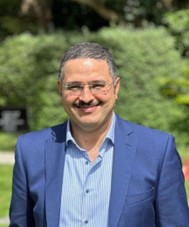
Dr. Ahmed ABD EL WAHED
Lab Head
Institute of Animal Hygiene and Veterinary Public Health
Leipzig University
Germany
Dr. Ahmed Abd El Wahed studied veterinary medicine at Mansoura University, Egypt. He received his Ph.D. in biology from the University of Goettingen (Germany) in 2011. He is currently the head of the laboratory at the Institute of Animal Hygiene and Veterinary Public Health (Leipzig University, Germany). In addition, Dr Abd El Wahed is a member of the German Alliance for Global Health Research; the German Society for Tropical Medicine, Travel Medicine and Global Health (DTG e.V.); the nomination committee of the American Society of Tropical Medicine and Hygiene (ASTMH); and the WHO’s strategic and technical advisory board on neglected tropical diseases. He is also one of founders of the Network for Young Researchers in Medical Infectious Diseases (Netzwerk Junge Infektionsmedizin).
Dr. Abd El Wahed has established a mobile suitcase laboratory for the rapid detection of viruses, bacteria, and parasites. His model has been deployed in several African and Asian countries.

Dr. Rea Maja KOBIALKA
Postdoctoral researcher
Institute of Animal Hygiene and Veterinary Public Health
Leipzig University
Germany
Dr. Rea Kobialka finished her studies in veterinary medicine at the Ludwig-Maximillians University in Munich in 2020. She holds a doctors degree from Leipzig University, where she specialized in rapid molecular diagnostics. She is a member of the American Society of Tropical Medicine and Hygiene (ASTMH), Deutsche Gesellschaft für Tropenmedizin, Reisemedizin und Globale Gesundheit e.V. (DGT) and was involved in various projects using the suitcase-lab such as monitoring of leishmaniasis in India and a multi-country study to evaluate the suitcase lab for rapid detection of SARS-CoV-2. Furthermore, she has worked on the concentration and analysis of bacteria in wastewater using nanopore sequencing.
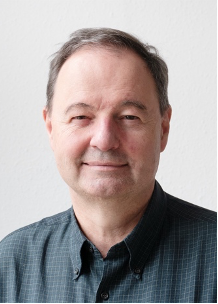
Dr. Manfred WEIDMANN
Head of Biochemistry at midge medical GmbH in Berlin
Guest Professor
Institute of Microbiology and Virology
Medical School Brandenburg, Senftenberg
Germany
He studied biology at the Johannes Gutenberg University in Mainz and obtained his PhD working on Clostridium difficile.
His work has focussed on developing rapid diagnostics for medical and veterinary viral diseases in field settings at the point of care with a career of 25 years on the topic. A mobile real time RT-PCR lab was deployed for outbreak investigations. A switch to using isothermal real time RT-RPA in the mobile lab eventually paved the way for the suitcase lab successfully used by the Institut Pasteur de Dakar in the Ebola outbreak of 2014/15 in Guinea. Additionally, he has worked on the molecular epidemiology of emerging viruses of European and African arboviruses and for aquatic viruses (https://mweidmann.com/).

Prof. Dr. Martin PFEFFER
Professor for Epidemiology
Institute for Animal Hygiene and Veterinary Public Health
Leipzig University
Germany
Between 1983 and 1989 Prof. Pfeffer studied veterinary medicine in Munich and did his doctoral thesis there. After a subsequent Post-Doc time there he joined the army to work in an institute dedicated to high consequence pathogens and biological warfare prevention. Since 2009 he is full professor for epidemiology at the Institute for Animal Hygiene and Veterinary Public Health of the University in Leipzig. He is a member of the International Scientific Working Group on Tick-Borne Encephalitis and the Companion Vector-Borne Disease World Forum. His scientific interest covers vector-borne zoonotic diseases with a focus on untangling the endemic transmission cycles by investigating the vector, the main reservoir host and the genetic diversity of the pathogen.

Prakash GHOSH, MSc
Research Associate
Institute of Animal Hygiene and Veterinary Public Health
Leipzig University
Germany
As a postgraduate in Biochemistry and Molecular Biology, Prakash Ghosh has been involved in clinical research for more than a decade. His immense interest in infectious diseases led him to get involved in clinical research towards developing and implementing interventions for NTDs. To date he has made significant contributions in the field of leishmania research. With his research knowledge and aptitude, he has won several competitive grants. In addition, he has been awarded several fellowships to advance his research credentials. Notably, he achieved the WHO-TDR CRDF grant to pursue his training on vaccine adjuvant formulations at IDRI, Seattle for 12 months and Pasteur Fellowship to complete Diploma in Vaccinology at Pasteur Institute, Paris. Currently he is working towards developing a surveillance system to monitor AMR in LMICs.
Austria

Ass. Prof. Olga MAKAROVA, PhD
Centre for Food Science and Veterinary Public Health
Clinical Department for Farm Animals and Food System Science
University of Veterinary Medicine Vienna
Austria
Prof. Olga Makarova is an assistant professor for the mechanisms of antimicrobial resistance in the One Health context at the University of Veterinary Medicine Vienna. She obtained her PhD in biology from Aarhus University, Denmark in 2012, where she worked on the development of DNA barcoding-based molecular diagnostics for quarantine pathogens as part of the EU project QBOL. During her postdoc at the Free University of Berlin, Germany, she led a research team working on the project “Glypho-Bak” commissioned by the German Federal Ministry of Food and Agriculture to investigate the effects of the pesticide glyphosate on antimicrobial resistance in farm animals. Her current research focuses on the surveillance and epidemiology of antimicrobial resistance across One Health sectors (ESBL Enterobacteriaceae); investigation of antimicrobial resistance mechanisms using experimental evolution and -omics techniques; development of novel antimicrobials using ionic liquids, and establishment of diagnostic methods for detection of antimicrobial resistance in food-borne pathogens using MALDI-ToF.
France

Sarah BONNET, PhD
Research Director,
INRAe: National Institute for Research for Agriculture, Food and the Environment, Paris
France
Sarah Bonnet, PhD, is a research director at INRAE and currently head of a Unit under contract embedded within the Ecology and Emergence of Arthropod-borne Pathogens laboratory at Institut Pasteur, Paris. Sarah is a parasitologist and an entomologist who has 20 years experience working on tick-borne pathogens of veterinary and human health interest, with a particular focus on developing field tools for pathogen diagnostics, biomarkers for tick exposure and anti-tick vaccine development. She participates in expert panels on arthropod vectors including ticks in numerous evaluation committees of both French national and international agencies, and teaches at several universities on the subject, including the coordination of an university diploma on “tick zoonosis” at University Paris XII.

Richard PAUL
Senior Staff Scientist, Institut Pasteur,
Ecology and Emergence of Arthropod-borne Pathogens laboratory, Paris
France
Rick Paul is a senior staff scientist working on arthropod-borne pathogens, notably on dengue across South-East Asia with a particular focus on evaluating the entomological and epidemiological efficacy of mosquito control strategies. He has a strong focus on assessing the relative role of environmental factors on determining mosquito and tick population bionomics that hence influence their epidemiological role.
Italy
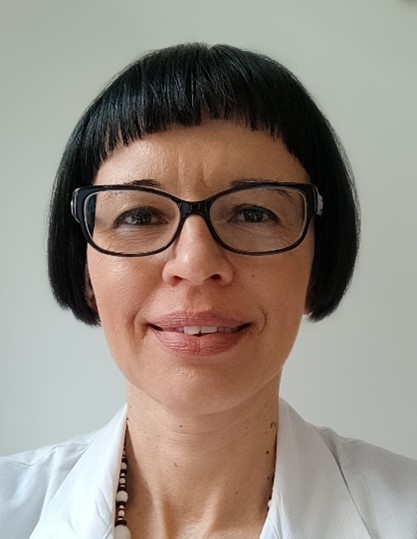
Luisa Barzon
Associate Professor, Department of Molecular Medicine, University of Padova, Padova, IT
Luisa Barzon, MD, is Professor of Biotechnology and Methods in Laboratory Medicine at the Department of Molecular Medicine, University of Padova, Padova, Italy. She is in charge of the reference laboratory for emerging viruses in the Veneto Region, Italy, and is part of European networks for infectious disease surveillance and control and pandemic preparedness. Her research focuses on the surveillance and diagnosis of vector-borne viral infections and on the study of emerging viruses, employing innovative technologies to characterize the interaction between viruses and the human host.

Marta Trevisan
Associate Professor, PhD, Department of Molecular Medicine, University of Padova, Padova, IT
Marta Trevisan is Professor of Microbiology and Virology, University of Padova, Padova, Italy. She is an expert in the development of innovative in vitro medels for the investigation of viral infections.
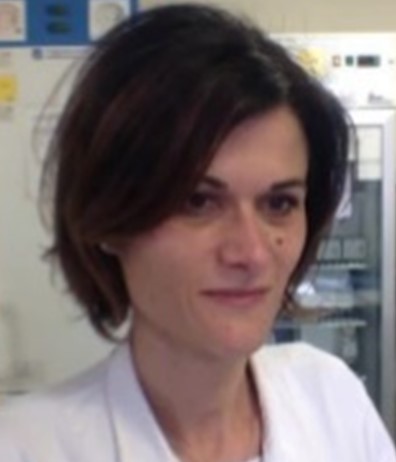
Monia Pacenti
Biologist Director, Padova University Hospital, Padova, IT
Monia Pacenti, PhD, is Biologist Director at the Microbiology and Virology Unit, Padova University Hospital, Padova, Italy. She is head of the Virology Section, with expertise in the diagnosis of emerging viral infections.
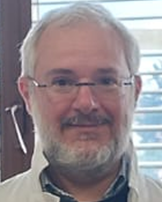
Alessandro Sinigaglia
Assistant Professor, PhD, Department of Molecular Medicine, University of Padova, Padova, IT
Alessandro Sinigaglia is Professor of Biotechnology and Methods in Laboratory Medicine, University of Padova, Padova, Italy. He is an expert in the isolation and characterization of viruses.

Emanuela Dal Molin
PhD Student, Department of Molecular Medicine, University of Padova, Padova, IT
Emanuela Dal Molin is PhD Student in Molecular Medicine, University of Padova, Padova, Italy. She is investigating the role of climate change in the emergence of vector-borne viral infections.
Serbia
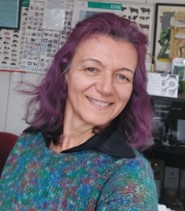
Sara SAVIC, PhD, DVM
Principal Research Fellow
Department for immunology, serology and biochemistry
Scientific Veterinary Institute “Novi Sad”, Novi Sad,
Serbia
Sara Savic completed her graduate studies of veterinary medicine at Faculty of Veterinary Medicine, University of Belgrade, Serbia in 1994. She completed her doctoral degree at University of Novi Sad, Serbia, on the topic of Lyme borreliosis. She is a member of Network of Ecohealth and One Health, as a chapter of Ecohealth International as well as European Wildlife disease Association, serving as a board member in both associations. She is involved in monitoring and surveillance of different zoonotic and vector borne diseases in the region of Serbia (brucellosis, leptospirosis, Q fever, Lyme borreliosis, Leishmaniasis, dirofilariosis, etc) as a governmental program or as a research study program. As head of the laboratory she is daily in contact with samples from animals and also to samples of vectors.

Vladimir GAJDOV, DVM
Research trainee, PhD student
Department of Virology
Scientific Veterinary Institute “Novi Sad”, Novi Sad,
Serbia
Vladimir Gajdov completed his graduate studies of veterinary medicine at Faculty of Veterinary Medicine, University of Belgrade, Serbia in 2020. He is in the program of PhD program studies at the same University. His area of interest is sequencing procedures, bioinformatics and molecular virology. In laboratory daily work, Vladimir is involved in detection of viruses by molecular diagnostic tests, detection of viruses in environment (environmental virology), in vectors and in wild animals, molecular characterization of the viruses detected in animals, vectors, environment and food and next generation sequencing of viral and bacterial pathogens.

Tamaš PETROVIC, PhD, DVM
Principal Research Fellow
Department of Virology
Scientific Veterinary Institute “Novi Sad”, Novi Sad,
Serbia
Tamas Petrovic completed his graduate studies of veterinary medicine at Faculty of Veterinary Medicine, University of Belgrade, Serbia in 1997 and at the same University he has completed her doctoral degree, on the topic of virology in 2006. Tamas is a member of European Society of Veterinary Virologist (ESVV) and a Board member from 2015 to 2022, President of the Section for zoonoses of Serbian Veterinary Association and a active member of the Academy of Veterinary Medicine of Serbia from 2014. Basic Research interest: Veterinary virology, vector-borne diseases, food and environmental virology, prevention, diagnostic, control and eradication of contagious diseases and zoonosis. He is involved in monitoring and surveillance of different zoonotic and vector borne virus diseases in the region of Serbia, predominantly Avian influenza, Hepatitis E, diseases caused by coronaviruses, African swine fever, Bluetongue, West Nile, USUTU, tick borne encephalitis etc. Tamas has a long-time experience in conventional and molecular diagnostic procedures. As head of the laboratory, he has access to samples from animals and also to samples of vectors.

Marina ŽEKC, PhD, DVM
Research Associate
Department for immunology, serology and biochemistry
Scientific Veterinary Institute “Novi Sad”, Novi Sad,
Serbia
Marina Zekic completed her graduate studies of veterinary medicine at Faculty of Agriculture, department of Veterinary Medicine, University of Novi Sad, Serbia in 2008. She completed her doctoral degree at University of Novi Sad, Serbia, on the topic of influence of endogenous and exogenous factors on the functional activity of neutrophil granulocytes in cows. Marina works in laboratory with molecular diagnostic methods on diagnostics of different zoonotic and vector borne diseases in the region of Serbia as well as on governmental programs as on research study programs.
Spain
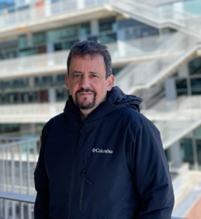
Xavier RODO, PhD
ICREA Research Professor,
Head of the Climate and Health Group at ISGlobal and Assoc. Prof. of Climate Change and Health at the Central University of Catalonia
Spain
Head of the CLIMA (Climate & Health Program) until 2023 and founding director of the IC3 climate institute and the Climate Research Laboratory-PCB. Biologist, MSc in engineering, completed his PhD in 1997 in computational ecology on the simulation of extreme ecosystems under climate forcing. Visiting fellow and associated scientist at Princeton U., the University of California-San Diego, COLA-IGES and Osaka Univ. Task Team member of the WMO on climate & air quality effects on COVID-19. He has a background in numerical and field ecology, climate dynamics and statistics. His interests are the interaction of climate and health, where he attempts to uncover and model from the field to the laptop, how climate impacts a wide range of diseases and to disentangle the interplay between intrinsic (e.g. immunity, demography, malnutrition) and extrinsic factors (e.g. climate, environment). He established the AIRLAB in Barcelona where work is done towards characterizing the dynamics and biodiversity of the airborne microbiome in aerosols and its effects on human health.
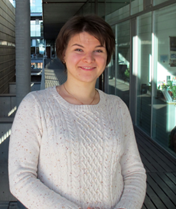
Sofya POZDNIAKOVA, Dr.rer.nat
Researcher
ISGlobal – Barcelona Institute for Global Health
Spain
Senior molecular biologist with a background in cell biology and specialized expertise in bioaerosol collection and characterization. Over the past five years, she has focused on developing DNA extraction methods for ultra-low biomass samples and has implemented a variety of sequencing techniques, including short and long read sequencing technologies to holistic characterization of the air microbiome. Furthermore, she is an expert in developing tools for measuring environmental exposure to biological particles and assessing their impact on human health.
Sweden

Tobias LILJA, PhD
Researcher
Swedish Veterinary Agency (SVA) Department of Microbiology, Uppsala
Sweden
Working on mosquitoes and mosquito borne diseases in a north European perspective. During the last ten years he has studied Swedish mosquito fauna with focus on both vector species as well as nuisance. By employing modern DNA techniques such as DNA barcoding, meta-barcoding, genetic species identification with specific qPCRs and studies of population genetics he has expanded the knowledge of mosquito species in Sweden and documented several new species. Since 2017 he has worked on uses of long read sequencing for detection of viruses, both in a domestic project and the European collaboration OHEJP TELE-VIR. In these projects methods for metagenomic sequencing using minION (Oxford Nanopore technologies) were developed and tested on several different substrates.
Finland

Tarja SIRONEN
Associate Professor
Department of Virology
University of Helsinky
Finland
Associate Professor Tarja Sironen’s research focuses on pathogen discovery and understanding the mechanisms of cross-species transmission from the molecular level to the population level and disease ecology. She has over 20 years of expertise in zoonotic viruses and the development of detection methods, microbial genetics and research on the pathogenesis of viral infections. Her research also involves animal pathogens of veterinary importance and she embraces the One Health approach. She has been working in large EU-consortia (EDEN, EDENext, Ebola MODRAD and VEO), and in Academy of Finland consortia (iCoin and VECLIMIT) and has a large network of collaborators. She leads projects on preparedness for emerging infectious diseases both in Finland and in Kenya, and these projects are linked to the proposal as wildlife samples will be provided through them. Her previous research related to this project includes work on discovery of coronaviruses, Covid-19 transmission, diagnostics, and sequencing, discovery of Bombali ebolavirus and development of pan-filovirus detection methods, on discovery of tick-borne pathogens, discovery of hantaviruses and their pathogenicity. In addition, she has worked on pathogens of veterinary importance, including discovery of novel agents causing disease, description of pathogenic traits and development of vaccines.

Ravi KANT
Adj. Professor
Department of Virology
University of Helsinky
Finland
Adj. Professor Ravi Kant, a researcher of Indian origin, brings more than two decades of expertise in microbiology, genomics, and bioinformatics, holding a Ph.D. in Veterinary Medicine from the University of Helsinki. His extensive background includes in-depth exploration of the microbiome and diverse pathogens. Currently serving as University Researcher/ adj. Professor in Medical Microbiology at the University of Helsinki and Associate Professor at the Medical University of Gdańsk, Poland. Dr. Kant is also part of the Versatile Emerging Infectious Disease Observatory (VEO) project (EU H2020), DURABLE (EU HERA), LongCovid (EU), VECLIMIT (Academy of Finland), iCoin (Academy of Finland), CROSSBAR (Academy of Finland), and a main coordinator for VEO, VECLIMIT, and iCoin. He has been involved in several large successful consortium applications (e.g. EU Horizon, Academy of Finland, Erkko). Dr. Kant showcases his proficiency with a portfolio boasting over 68 co-authored papers, 2180 citations, and an h-index of 26. He is editor and reviewer for various international microbiology journals. Additionally, Dr. Kant contributes as a grant reviewer for several EU national academies, enhancing his commitment to advancing research and academic excellence.
Türkiye
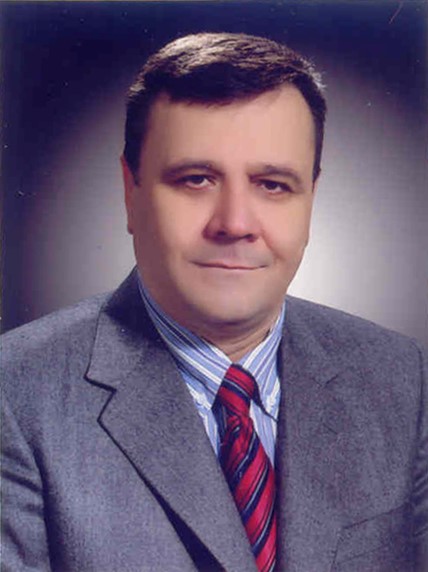
Dr. Nazif ELALDI
Professor, MD
Department of Infectious Diseases and Clinical Microbiology, Medical Faculty
Sivas Cumhuriyet University
Türkiye
Dr. Nazif Elaldi is a professor of Infectious Diseases and head of the Department of Infectious Diseases and Clinical Microbiology at Sivas Cumhuriyet University (Türkiye). He received his expertise for Infectious Diseases from the same department in 1997. He has a broad background in the field of Infectious Diseases and Clinical Microbiology with specific training and expertise in Crimean-Congo Hemorrhagic Fever (CCHF) in Türkiye. His research interests lie in the diagnosis, pathogenesis, treatment and prevention of CCHF. His institution, Sivas Cumhuriyet University, is one of the big tertiary care centres in Türkiye with 1150 beds and by the year of 2023, more than 2600 confirmed CCHF patients have been treated and followed-up in the centre. During the last seven years, Dr. Elaldi worked on the validation of diagnostic tests, and development of candidate vaccines for CCHF. He reported a clinical study with the largest sample size for oral ribavirin in the treatment of CCHF with collaboration of other health-care centres in Türkiye.

Dr. Zati VATANSEVER, DVM, PhD
Professor
Kafkas University, Faculty of Veterinary Medicine department of Parasitology, Kars Türkiye
Dr. Zati VATANSEVER is professor at Kafkas University, Faculty of Veterinary Medicine department of Parasitology, Kars, Türkiye. He received his PhD degree at Ankara University with his work on tropical theileriosis. His career continued in the field of tick borne diseases in animals and for the last 20 years extensively concentrated on vector ecology and epidemiology of CCHF in Türkiye. He is a member of the Zoonosis Committee and CCHF Consulting Board of Türkiye and actively takes part in vector surveillance and tick-prevention measures in the country. The team led by Dr. Vatansever at Kafkas University consists of vector ecologists and molecular biologists who are experienced in ecology and diseases transmitted by ticks, mosquitoes and biting midges.
Greece
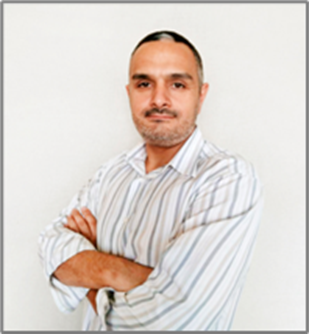
Kostas DELAKOURIDIS, MSc
CEO of Repado
Greece
Kostas Delakouridis brings over 15 years of experience in regulated medical software, with a broad spectrum of expertise ranging from healthcare applications to Software as a Medical Device (SaMD) and advanced decision support systems. With a deep understanding of these domains, Kostas adeptly navigates the complexities of medical regulatory frameworks and ensures compliance with software industry standards. As the co-founder and CEO of REPADO, Kostas plays a pivotal role in steering the company’s strategic direction, spearheading innovation to deliver cutting-edge solutions tailored to the dynamic needs of the medical software sector. He holds a Diploma in Information and Communication Systems Engineering (2004) and a Master of Science in Advanced Information Systems (2006).
Switzerland

Prof. Dr. Wendelin Jan STARK
ETH Zürich
Department of Chemistry and Applied Biosciences
Functional Materials Laboratory
Switzerland
Full Professor at the Institute for Chemical and Bioengineering of ETH Zurich and head the Functional Materials Laboratory. He studied Chemistry at the ETH with a stay at the UC Berkeley in 1999 and pursued a Ph.D. in Mechanical and Process Engineering at ETH. Wendelin Stark’s research combines materials with specific functions for medical or industrial use.

Dr. Michele GREGORINI
Founder and CEO of diaxxo AG
Switzerland
Dr. Michele Gregorini holds a PhD in Chemical Engineering from ETH Zürich and is the founder and CEO of diaxxo AG, a ETH-spin off company focusing on automation and optimization of molecular diagnostic procedures with the ultimate goal of delivering laboratory-grade diagnostics directly to the point-of-care.

Dr. Tobias SCHINDLER, PhD
CTO of diaxxo AG
Switzerland
Dr. Tobias Schindler, holding a PhD in Epidemiology from the University of Basel, serves as the CTO of diaxxo AG. Dr. Schindler’s expertise includes the development and implementation of innovative PCR-based solutions aimed at improving the detection and monitoring of infectious diseases.
Brazil

André Felipe STRECK, PhD
Associate Professor
Universidade de Caxias do Sul
Brazil
André Streck holds a degree in Veterinary Medicine from the Federal University of Rio Grande do Sul (UFRGS, 2006), a master’s degree in Veterinary Sciences from UFRGS (2009), Specialisation in Theoretical and Practical Foundations in Bioinformatics from the Oswaldo Cruz Foundation (2009), a PhD in Veterinary Sciences from the University of Leipzig (2013), and a postdoctoral degree from UFRGS (2015). Currently, he is an Associate Professor II at the University of Caxias do Sul (UCS), serving as a professor in the Veterinary Medicine program, a supervising professor in the Animal Health Postgraduate Program (PPGSA, UCS), and a supervising professor in the Biotechnology Postgraduate Program (PPGBIO, UCS). He is the coordinator of PPGSA and a Research Advisor for the Research and Postgraduate Pro-Rectorate at UCS. He has national and international scientific publications in the field of veterinary microbiology and genetics, with a focus on veterinary virology.
Uganda

Dr. Julius OKUNI
Associate Professor
Veterinary Pharmacy, Clinical and Comparative Medicine
Makerere University
Uganda
Dr. Julius Boniface Okuni is an associate professor of veterinary pathobiology and molecular diagnostics in the Department of Veterinary Pharmacy and Clinical and Comparative Medicine at Makerere University (Uganda). His research interests lie in the diagnosis of infectious and emerging diseases. In the past seven years, Dr. Okuni has worked on the development and validation of diagnostic tests for African swine fever, paratuberculosis, Newcastle disease, tuberculosis, and SARS-CoV-2. As part of the effort to find suitable rapid and accurate diagnostic methods for emerging epidemic diseases, he participated in the validation of the mobile suitcase laboratory for field diagnosis of paratuberculosis and SARS-CoV-2. As part of the ADAPT consortium on anti-microbial resistance, Dr. Okuni is one of the PIs from Uganda who will be following a One Health approach to tackle the challenge of AMR, particularly by focusing on surveillance and hygienic practices in livestock husbandry that reduce the use of antibiotics.
Senegal

Dr Martin FAYE, PhD
Institut Pasteur de Dakar
Senegal
Dr. Martin Faye, currently holds the position of Research Fellow at the Institut Pasteur de Dakar (IPD) since 2022, where he started working in 2012. At the present, MF is a member of the WHO’s Rhabdovirus expert Group, the Global Wastewater Consortium (GLOWACON) and the Acute Flaccid Myelitis (AFM) working group. He holds a Master degree in population genetics bestowed by the Faculty of Sciences and Technics of the Cheikh Anta Diop University of Dakar (2012) and a PhD in virology from the Cheikh Anta Diop University of Dakar (2017).
At IPD, most of the work carried out in the last 10 years has focused on the analysis of viruses associated with viral encephalitis and, in particular, those found hematophagous arthropods, such as mosquitoes. MF has a keen interest in public health microbiology and epidemiology of infectious diseases, the discovery of new viruses, the characterization of their genomes, and the ways these viruses are dispersed over time and space. In his world, he uses a series of complementary technical approaches, which combine classical virology, molecular biology (including diagnostics development) and bioinformatics (essentially involving phylogenetic inference and phylogeography). Many collaborations have also led to the publication of studies on outbreak investigations such as Monkeypox, polioviruses, SARS-COV-2, Ebola and Marburg virus disease, using directed as well as metagenomic based viral surveys. In addition to viral-focused work, MF has also been using many bioinformatics tools towards the study of hematophagous arthropod vector diversity and phylogeny.

Andy MAHINE DIOUF, MSc
Research student
Institut Pasteur de Dakar
Senegal
Andy Diouf’s research focuses on improving the surveillance and diagnosis of arboviruses and hemorrhagic fever viruses through the research and development of state-of-the-art molecular diagnostic tools. One of the specific aspects of this research is isothermal RPA amplification, including the use of suitcase labs and other point-of-care devices. He has experience with viruses such as Crimean-Congo hemorrhagic fever virus (CCHFV), dengue virus (DENV), and Rift Valley fever virus (RVFV).
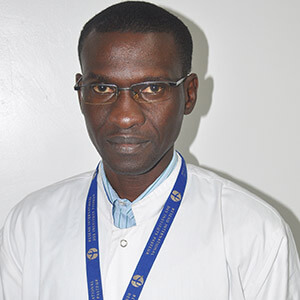
Dr. Oumar Faye
Dr Oumar FAYE is a Senior Researcher at the Arbovirus and Viral Hemorrhagic Fever Unit of Institut Pasteur Dakar (IPD), Senegal and deputy Head of IPD WHO Collaborating Center (WHOCC) for arbovirus. He did his master and PhD in the same Unit between 2002 to 2009 and held the position of research assistant between 2010 and 2015. Oumar is highly specialized in arbovirus and hemorrhagic fevers including: diagnostic kits development and field evaluation, molecular biology, deployment of mobile diagnosis laboratory during outbreak investigation. His training is multi- disciplinary, cross-cultural, involving interactions with diverse teams and individuals. Oumar developed the first molecular diagnosis method for Zika virus, which was used to detect the first cases of the Zika virus in Brazil in 2015. In addition, to set up diagnostics on site, in low-resource settings, he has contributed to the development and evaluation of field rapid tests based on the recombinase polymerase amplification – successfully used during IPD deployment in Ebola outbreaks in Guinea and Democratic Republic of Congo (DRC). Oumar is a leading expert in response to epidemics and has been deployed for Ebola in Guinea and DRC, dengue in Cape Verde and Senegal, Zika in Brazil and Cape Verde.
Bangladesh
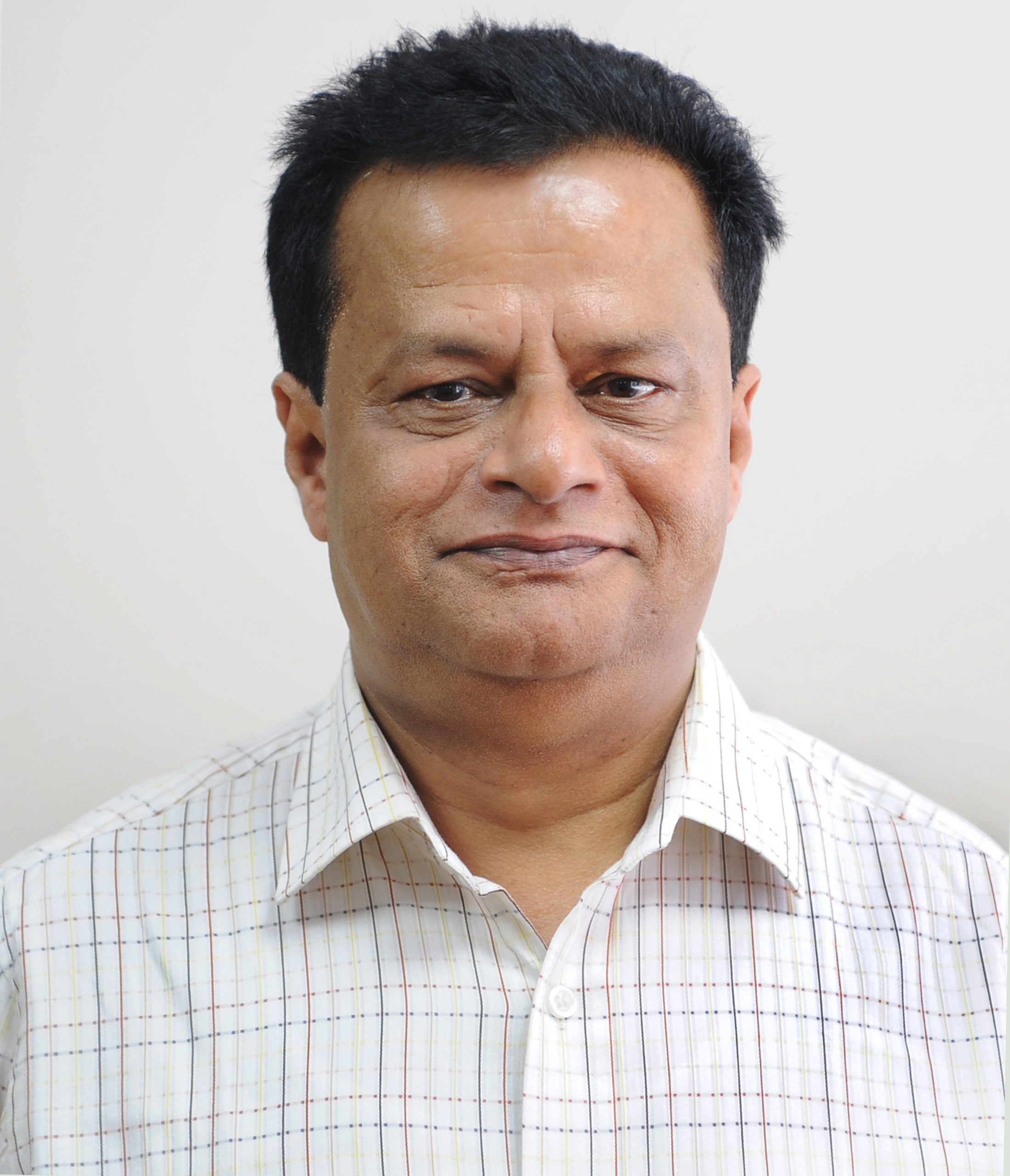
Dr. Dinesh MONDAL
Emeritus Scientist
International Centre for Diarrhoeal Disease Research, Bangladesh (icddr,b)
Bangladesh
Dr. Dinesh Mondal, an Emeritus Scientist at the International Centre for Diarrhoeal Disease Research, Bangladesh (icddr,b), graduated in medicine (MBBS) in 1988. He later pursued MD in pediatrics and a PhD, completing them in 1992 and 1998, respectively. Joining icddr,b in 2001 as a medical officer, he now serves as an Emeritus Scientist. Previously, he held the role of Acting Senior Director of the former Laboratory Sciences and Services Division from 2020 to 2023. Dr. Mondal has dedicated his career since 2001 to researching enteric infections and nutrition, with a focus on neglected tropical diseases like visceral leishmaniasis, lymphatic filariasis, and leprosy, along with vector control. He has forged successful partnerships, collaborating with national and international institutions and organizations. He works closely with the Communicable Disease Control Unit of the Directorate General of Health Services, Government of Bangladesh. He has established expert groups of young scientists for epidemiology, diagnostics, drug trials, operational research, and vector control, aimed at controlling neglected tropical diseases and vector-borne diseases in the country. icddr,b’s research on Visceral Leishmaniasis (VL) led by Dr. Mondal contributed to the National Kala-azar Elimination Program (NkEP) of Bangladesh, achieving its VL elimination target and making it the first country in the world without VL as a public health problem (recognized by the WHO in 2023). He and his teams persist in developing tools for effective surveillance, diagnostics, treatment, and vector control for diseases such as dengue and tuberculosis.
Hungary
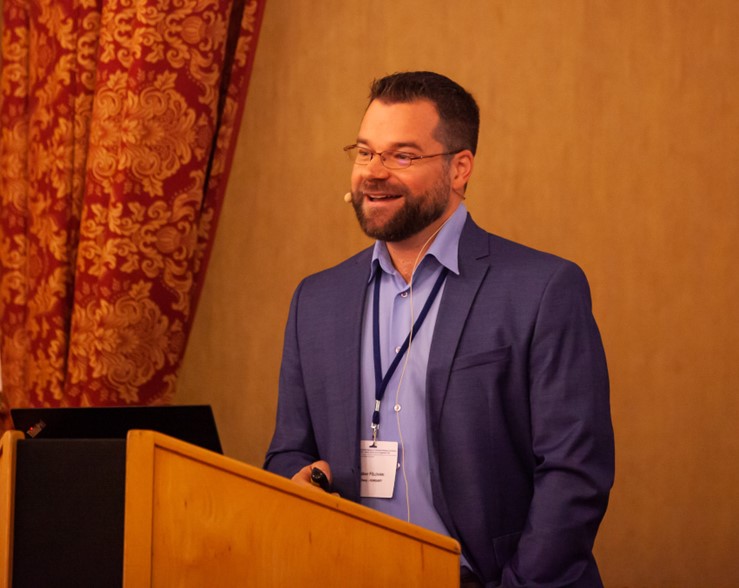
Dr. Gábor FÖLDVARI, PhD
Research group leader
Institute of Evolution, HUN-REN Centre for Ecological Research, Budapest
Hungary
Dr. Gábor Földvári has a research focus on ecology of emerging infectious diseases. He graduated as a biologist in Szeged, Hungary in 2001 specialized in microbiology and ecology. He obtained his PhD and habilitated in veterinary parasitology at the University of Veterinary Medicine, Budapest. He has teaching experience in various university courses in zoology, parasitology and parasite ecology in English, German and Hungarian languages. He had several months-long research visits in Complutense University of Madrid, Konrad Lorenz Institute, Vienna and the Natural History Museum, London. He was a guest lecturer in veterinary universities of Madrid, Brno and Vienna. He works with a broad range of international collaborators, in parasitology, disease ecology, more specifically eco-epidemiology of ticks and tick-borne pathogens and the effect of climate change and biodiversity loss on emerging infectious diseases. He currently leads the Emerging Pathogen Ecology Research Group in the Institute of Evolution, Centre for Ecological Research, Budapest. He investigates preventive measures and application of the DAMA (Document, Assess, Monitor, Act) protocol for ticks and tick-borne pathogens as leader of the Eco-epidemiology division of the National Laboratory for Health Security and chairing the EU-funded COST Action PRAGMATICK.
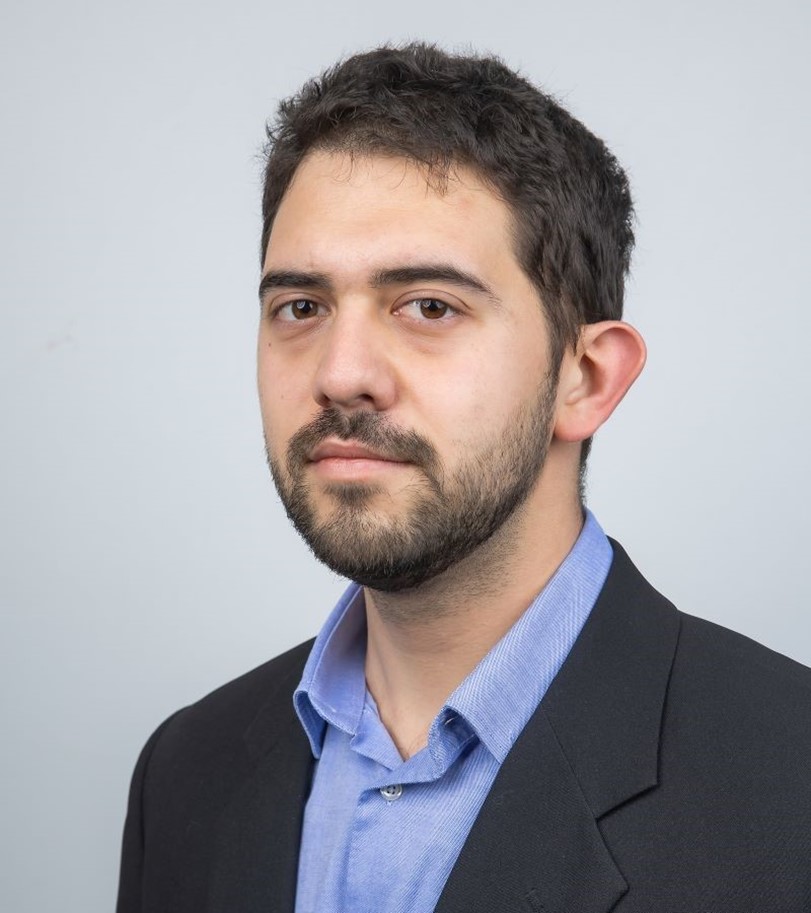
Máté MIKLOS, PhD
Research fellow
Institute of Evolution, HUN-REN Centre for Ecological Research,Budapest
Hungary
Máté Miklós, studied biology at University of Debrecen, Hungary. He received his Ph.D. degree with his work on population genetics and evolution of freshwater hydras in 2022. In the last 6 years, he gained a lot of experience in the practical implementation of molecular laboratory work involving microbiome. He currently works in the Emerging Pathogen Ecology Research Group in the Institute of Evolution, Centre for Ecological Research, Budapest.

Éva SZABO, MSc
Junior research fellow
Institute of Evolution, HUN-REN Centre for Ecological Research, Budapest
Hungary
Éva Szabó studied biology at the Faculty of Natural Sciences, Eötvös Loránd University, Budapest, and has been a PhD student since 2022. Her research focuses on the effects of climate change and urbanisation on ticks and the pathogens they carry. She considers it important to involve the community in these issues, so she uses the method of citizen science to collect data and frequently gives lectures and organizes workshops on these topics. Since 2021 she works in the Emerging Pathogen Ecology Research Group in the Institute of Evolution, Centre for Ecological Research.
PREPARE-TID Governance Structure
